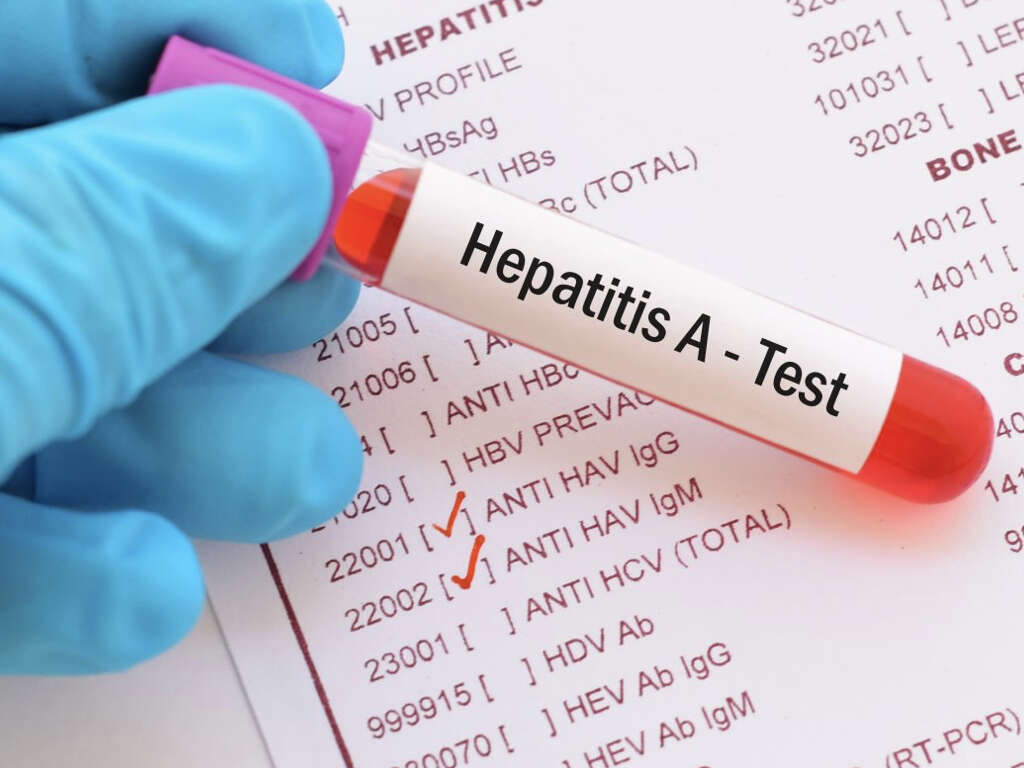What Are Hep A Symptoms?
Hepatitis A is an infection of the liver that’s caused by the hepatitis A virus. The condition is prevalent in areas where there are poor hygiene standards and it can be transmitted through contaminated food and water. It can also be transmitted through sexual intercourse with an infected person.
Hepatitis is generally known to be a dangerous disease, but hepatitis A is not as dangerous as the other types. Regardless, it can still go on to develop into more serious conditions in a small number of cases. All due care should be taken to avoid contracting hepatitis A, as well as the other varieties of the disease.

1. Fever
While we will often try and use medication to reduce a fever, they are actually there to help us. Viruses and other pathogens cannot survive beyond certain temperature ranges and if their environment is too hot, then it can kill them. As such, our immune system has evolved to use an appropriate mechanism to defeat them.
When an infection is present, our immune system increases the temperature of our body. This will help to slow down the spread of the virus, and maybe even kill it outright. The fever associated with hepatitis A should only be mild, but it should still not be treated with complacency.

2. Appetite Loss
We will often not feel much like eating when we are ill, and hepatitis A is no exception. It should come as no surprise, especially considering the liver is an important part of the digestive system. The patient will often not feel like anything at all, regardless of how little they might have eaten so far.
Even though the patient may not feel like eating, it is still important for them to get what nutrition they can. It is also advised that patients with hepatitis A try and eat several small meals throughout the day instead of 2-3 larger meals.

3. Cold Symptoms
People that catch hepatitis A might at first mistake the disease for another, very common, disease: the cold. This is because the two diseases share some of the same symptoms. It also makes sense to assume that we have the cold considering that it is such a common ailment. This can mean a cough and a sore throat that can be quite mild, or quite painful.
If you do suspect the cold then it is normal to just try to carry on as you were the best you can. If the symptoms persist, though, and/or you develop other more concerning symptoms, you should speak with a medical professional.

4. Abdominal Pain
Considering the liver is located in the abdomen, it makes sense that an infection of the organ will result in pain in that area. Pain, and other types of discomfort, are a fairly common symptom of hepatitis A, and the severity of the pain can vary from patient to patient.
The pain will be felt specifically just beneath where the ribcage ends and on the right hand side of the abdomen. If the symptom does become unbearable then it could be a sign of something very serious, so severe cases of pain in the area should encourage you to see a medical professional.

5. Pale Stools
When we eat, our gallbladder releases a small amount of a liquid substance known as bile. This substance is manufactured in the liver and contains enzymes that help to break down certain substances. Bile is very important to us because it helps to break down the food that we eat, especially fatty foods.
Bile is secreted into the intestines and some will also pass out of the body in our stools. Bile is itself brown in color, and this helps to give our stools their brown color also. When there is a problem with the liver, less bile may be produced and released into the intestines. This means conditions like hepatitis A can result in pale colored stools.

6. Fatigue
Being ill can be very tiring, and we will often not feel like doing anything. It is something that can affect people regardless of how much rest they get, and it is something that can affect people with hepatitis A. The condition may be worsened by a lack of appetite, and also if the patient is struggling to get enough sleep.
As if the fatigue was not enough, hepatitis A can also cause aching joints and muscles. While they may not be interested in any physical activities, the patient should really be resting up anyway. If you can, put your feet up and take it easy until the problem is dealt with.

7. Nausea
If your liver is not functioning as well as it should be, then there will be more toxins than usual circulating in the blood. This is not necessarily dangerous, depending on how many toxins there are, but it can make us feel quite ill. Many people that have hepatitis A will experience nausea as a result.
The extent of the nausea can vary from person to person, and some people might barely notice it at all. When there is nausea, there is also another associated symptom not far behind, which is vomiting. Not everybody with nausea will vomit, but for those that do, the symptom can contribute to other problems like fatigue.

8. Itching
As mentioned, a dysfunctional liver can mean more toxins than usual are flowing through your blood. These toxins can begin to accumulate in the tissues of the skin, and this can cause the skin to become very itchy. It can also be caused by the build up of bilirubin.
As such, itchiness is a fairly common symptom of hepatitis A. The itchiness can be intense, and it can be persistent, making life very uncomfortable for the patient. Regardless, you should always try and resist scratching no matter how tempting it may be. Scratching may break the skin with your nails, and this can result in infections.

9. Dark Urine
Bilirubin is a yellowish substance that occurs naturally in the body and is a by product of the breakdown of red blood cells. The substance is usually processed by the liver, and is also used in bile. If the liver is not fully functional, however, then levels of bilirubin in the body can increase.
One result of this is that more bilirubin ends up being filtered out of the blood by the kidneys. This means that there will be more of the substance found in the patient’s urine. In turn, bilirubin’s yellow color will mean that the patient’s urine will become darker in color.

10. Jaundice
As mentioned, hepatitis A can mean that there is more bilirubin flowing through the patient’s body. The extra bilirubin can begin to accumulate in the patient’s skin tissues, and this can mean that the patient’s skin can begin to turn yellow itself. This is known as jaundice, and it is most noticeable in the whites of the eyes and areas where the skin is thin.
Jaundice can be quite striking visually as the patient turns a yellow/golden color. It is not harmful in itself, however, and the skin will return to normal once the underlying cause is dealt with. Regardless, jaundice can be caused by serious underlying health issues so it should definitely be checked out.









